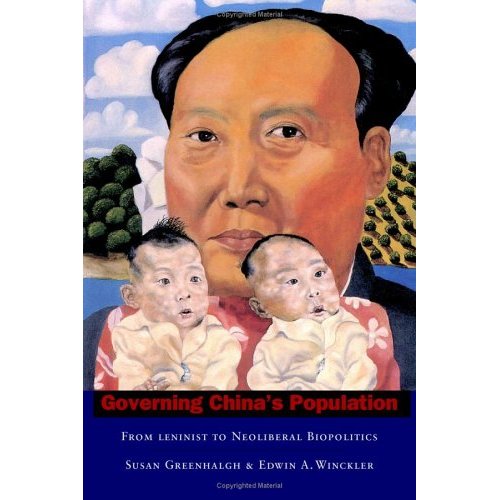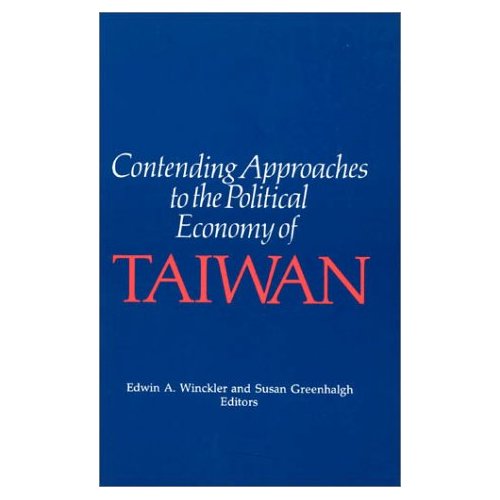

 字體:小 中 大
字體:小 中 大 |
|
|
|
| 2007/06/02 16:14:27瀏覽1147|回應2|推薦2 | |
參考政治符號網誌的討論;Susan Greenhalgh和Edwin Winckler這對夫妻最近合著有Governing China's Population: From Leninist to Neoliberal Biopolitics一書;1988年他們合編了Contending Approaches to the Political Economy of Taiwan一書(中譯本題名《台灣政治經濟學諸論辯析》,人間,1994) By John Ruwitch 博白, China (Reuters) - Guan Yonglin has six children from two marriages, which, no matter how you look at it, violates China's long standing one-child policy. And he knows it. That's why he paid a 2,000 yuan ($260) fine three years ago to his township government here in the gentle hills of the southern region of 廣西. Then this month, local officials delivered a terse one-page notice: for having five more children than the law permits, Guan owed the equivalent of more than $15,500 in fines. "I already cleared this up by paying 2,000," he said. "I told them, 'This government of yours now wants 120,000 from me. Where am I supposed to get it?"' Not surprisingly, he couldn't pay what amounted to about 45 times the region's rural annual per-capita income, so the Shuangwang township government seized the assets of the 53-year-old farmer-turned-construction contractor. Many others in the area also had furniture, farm tools, valuables and even doors and windows hauled off by over-zealous officials on a drive to strictly enforce family-planning rules. In response, hundreds of angry peasants -- some say more than 1,000 -- attacked government offices in four townships, burned vehicles and fought with officials and police. This week, similar violence erupted in another area in the same municipal jurisdiction of Yulin. Behind this flaring unrest is a volatile mixture of social and financial strains that beset much of the poor Chinese countryside. The so-called "one-child" policy is one of the most widely applied policies in the world's most populous country, enforced by legions of petty officials facing farmers who lack any safety net except their children. But as the central government has cut burdens on farmers by abolishing agricultural taxes, the policy has become one of the few reliable revenue sources for local governments -- encouraging officials to turn a blind eye to violators and then strike them with heavy fines. ONE PLUS ONE EQUALS TROUBLE The one-child policy stemmed from fears that, as China emerged from the chaotic Cultural Revolution, a country historically beset by floods and famines would be unable to feed its people from a mere 7 percent of the world's arable land. Since launching the policy in 1980, couples have been limited to one child, sometimes two, depending on location, occupation and ethnicity. Officials proclaim it has prevented 400 million births in a country where the population is 1.3 billion and counting. The policy, though, has been a lightning rod for controversy and criticism. Reports have surfaced over the years of women being forced to have abortions, sometimes as late as eight months into pregnancy. Activists who uncover abuses are muzzled, like 陳光誠, a blind rights crusader who made international headlines when he was jailed in 山東 after exposing forced abortions and sterilizations in the northern province in 2005. The family-planning policy has exacerbated a gender imbalance in The policy has also meant the number of working-age people is shrinking relative to In practice, many people ignore it. A decade ago, officials said only 20 percent of the country's families actually had one child. Some, no doubt, had none, but many had more. As personal wealth in At the same time, though, experts note that "Rapid socioeconomic development has largely taken care of the problem of rapid population growth," said policy expert Susan Greenhalgh of the "The real problems now are the still-rising sex ratio at birth and rapid aging without social security, both exacerbated by the ultra-low levels of fertility." CASH CRUNCH Population growth was a problem in 博白, where the number of people has more than tripled to 1.6 million from 1949 when the Communists took power, and state media quoted a local official as saying there was "a sharp reduction" in land per capita. Another likely driver behind the harsh family planning drive and particularly the exorbitant fines, analysts note, is that townships, the lowest rung of government, are increasingly strapped for cash and many are in debt. In recent years, the central government has devolved fiscal responsibility while at the same time abolishing fees and cut taxes in rural areas in recent years to ease the burden on the country's more than 700 million rural residents. On paper, subsidies to rural areas have risen, but experts say they often fail to trickle down. "The family-planning fee is one of the few permissible fees left for rural "It is the only loophole left." A Shuangwang official reached by telephone denied stories like Guan's and said the local coffers were just fine. In 2005, The year the agricultural tax was dropped, the China Daily newspaper predicted: "Standing at a significant crossroads, township governments will encounter new challenges once revenue from the tax dries up." ($1 = 7.648 yuan)
|
|
| ( 時事評論|兩岸 ) |











